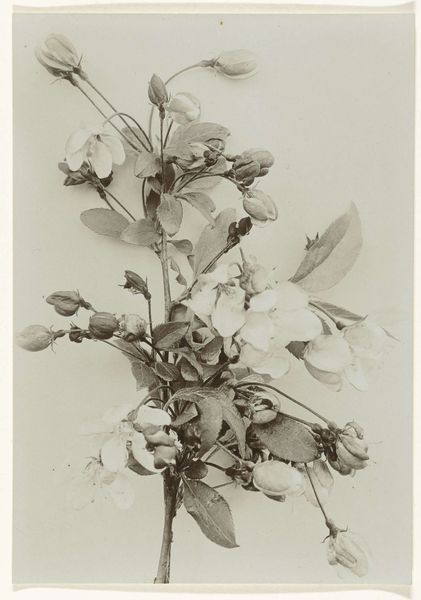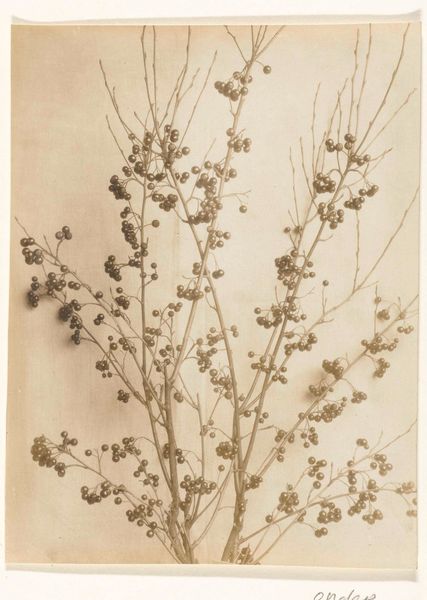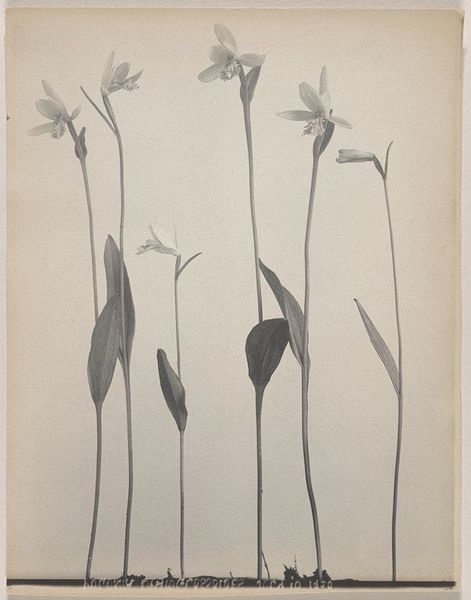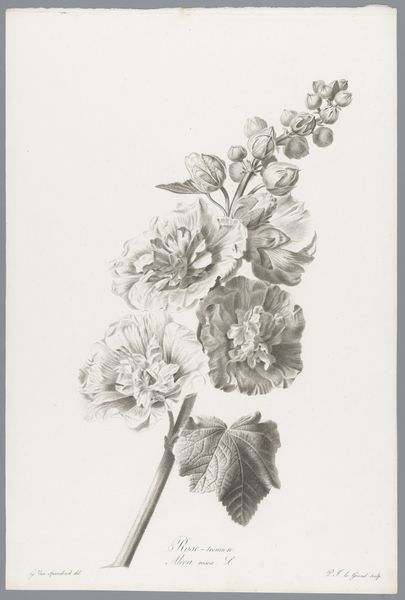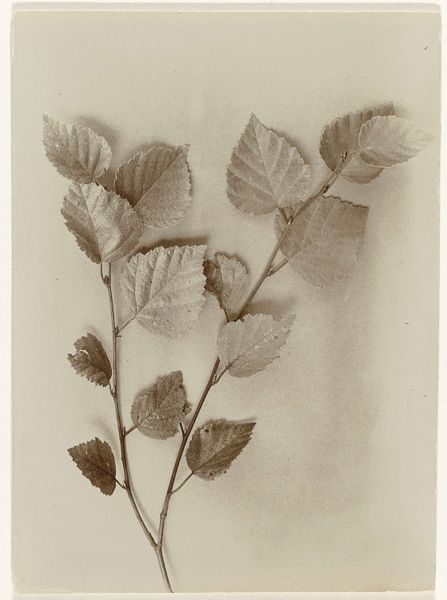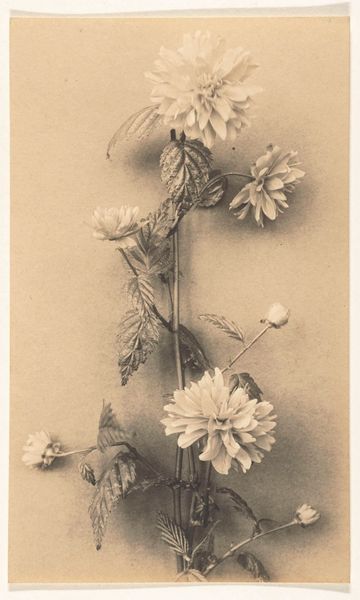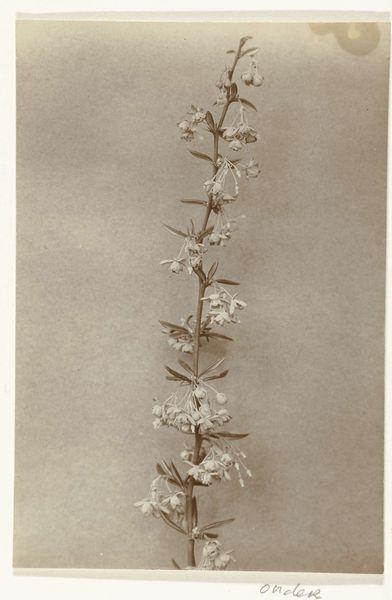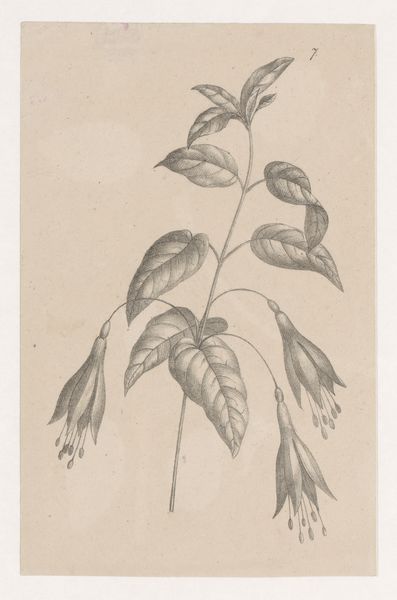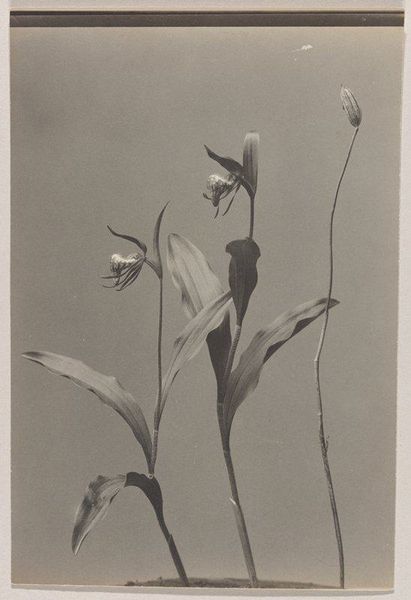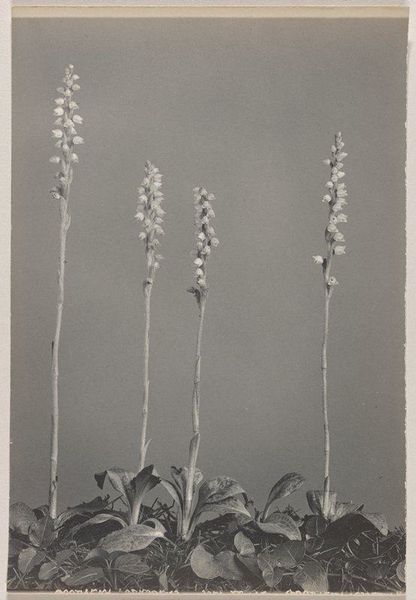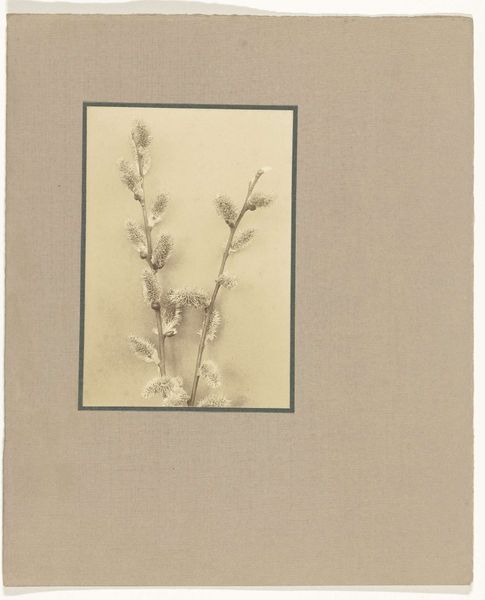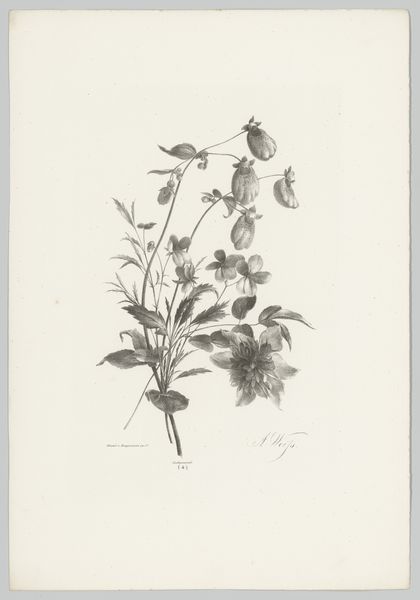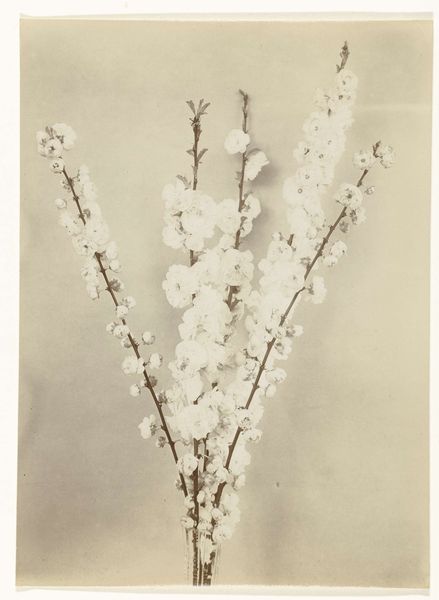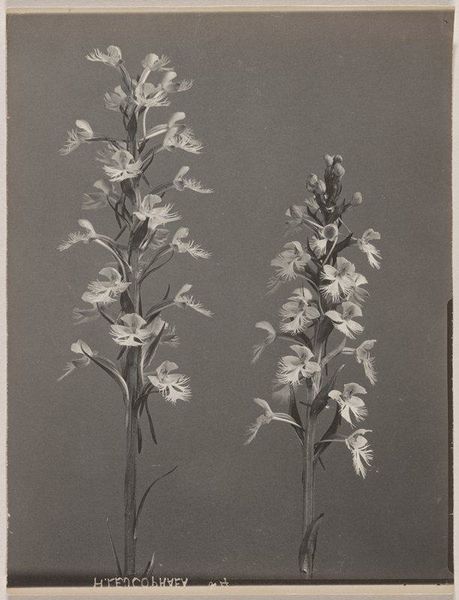
photography
#
pictorialism
#
landscape
#
photography
#
realism
Dimensions: height 153 mm, width 118 mm
Copyright: Rijks Museum: Open Domain
Editor: Here we have "Tak van een berk met knoppen," or "Branch of a birch with buds," by Richard Tepe, dated around 1900-1930. It's a photograph, and there's something really gentle about it. It feels quiet and observant. What do you see in it? Curator: I see a document of labor, even in its apparent simplicity. Consider the materials: photographic paper, the chemicals necessary for development, the camera itself. These objects, and the skills required to use them, speak to a complex web of industrial production and technological advancement. How do these processes inform our understanding of nature itself? Editor: That's a very interesting point. I was just thinking about how closely it resembles some early botanical illustration techniques! Curator: Precisely! Think about the labor involved in those older methods of documentation versus the shift toward the photographic image. Does photography democratize the process of image-making, making it more accessible? Or does it introduce a new form of specialized knowledge and technological dependence? What societal shifts are revealed by comparing these material processes? Editor: So, you’re saying the value is less about the artistic vision and more about… the conditions that made this photograph possible? Curator: It's about both! The choice to photograph this particular subject matter, in this specific way, is informed by those conditions. Consider pictorialism: how did it mediate between industrial advancement and notions of “artistic” expression? Where is nature positioned in this arrangement, and to what effect? Editor: I never really considered the actual production process as holding so much meaning. I usually just look at the aesthetic choices. Curator: Thinking through materiality invites us to connect artistic expression with broader societal conditions and to acknowledge a network of creation beyond just the artist. Editor: That's given me a lot to think about. Thanks for shifting my perspective. Curator: My pleasure. Exploring the world behind and within the image adds so much to its appreciation.
Comments
No comments
Be the first to comment and join the conversation on the ultimate creative platform.
